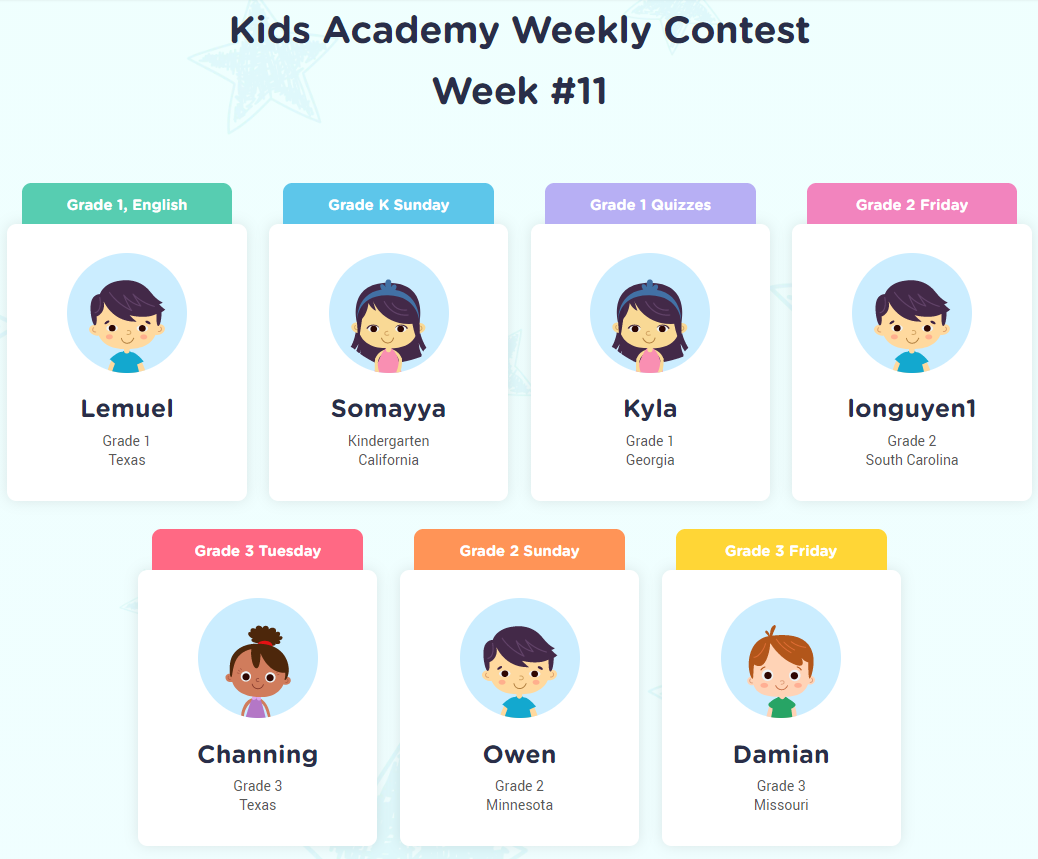Money recognition Extra Challenge Math Worksheets for Ages 4-9
4 filtered results
-
From - To
Enhance your child's math journey with our Money Recognition Extra Challenge Math Worksheets, specifically designed for ages 4-9. These engaging, interactive worksheets help young learners identify coins, understand their values, and practice basic financial concepts in a fun and stimulating way. Each worksheet is crafted to deepen children's money recognition skills, laying the foundation for future math abilities and real-life applications. Parents and educators will appreciate our diverse range of activities that cater to different learning styles, ensuring every child gains confidence as they navigate the world of money. Unlock your child's potential—download our worksheets today and make learning enjoyable!
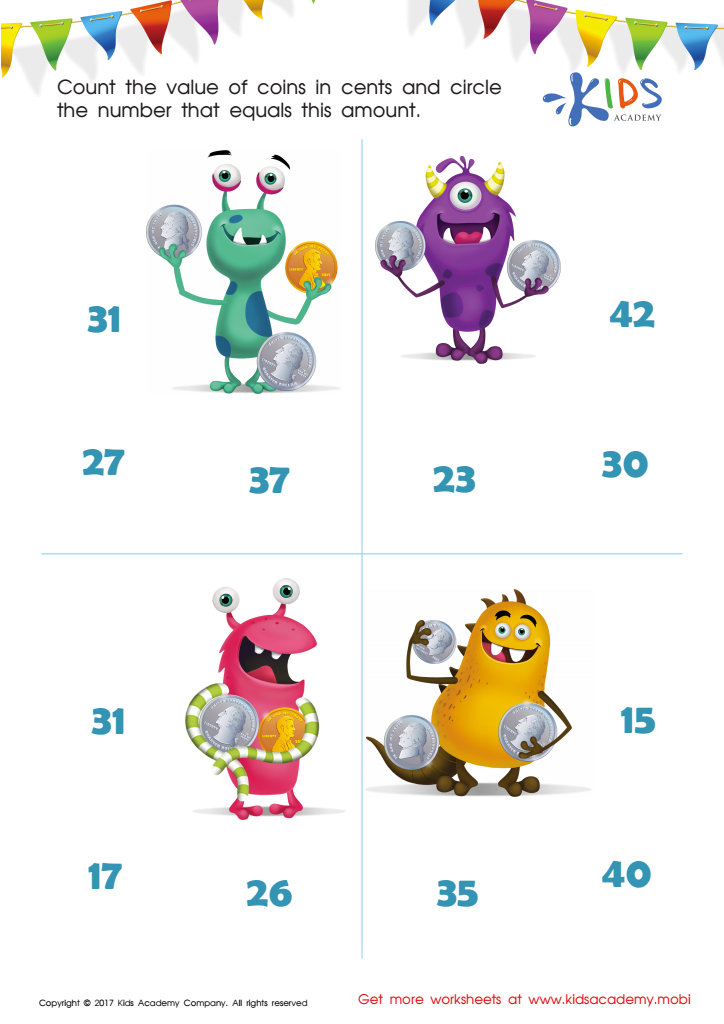

How Many Coins Money Worksheet
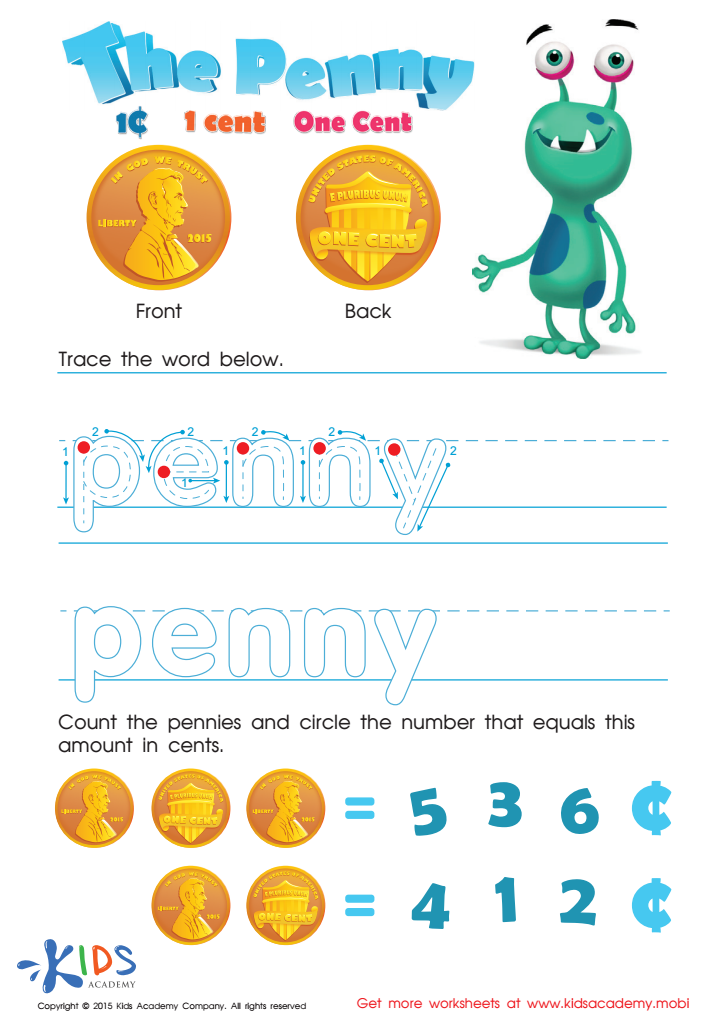

One Cent or the Penny Money Worksheet
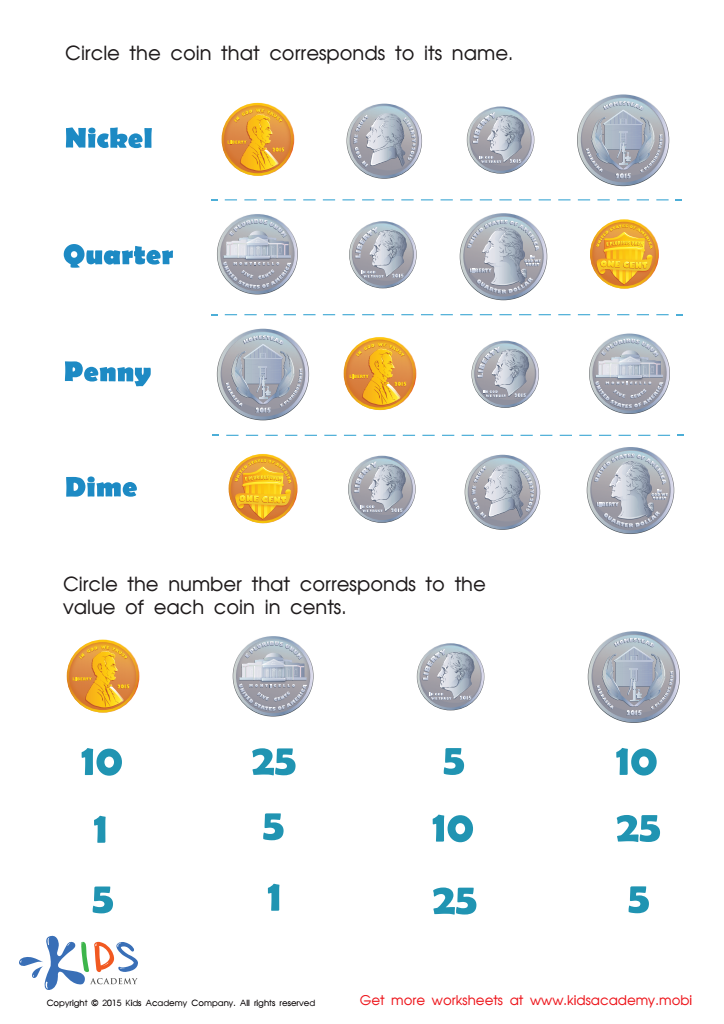

Coin Names and Values Money Worksheet
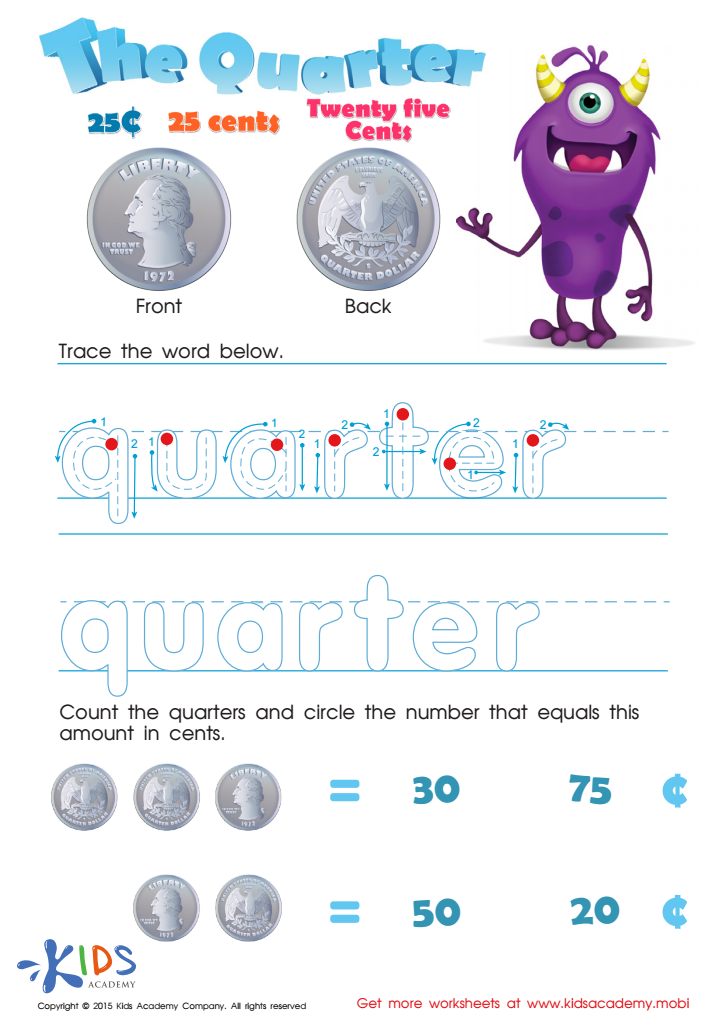

Twenty Five Cents or the Quarter Money Worksheet
Money recognition is a fundamental math skill for children aged 4-9, serving not only as a key foundation for future financial literacy but also as a practical life skill. Understanding money helps children develop critical thinking, problem-solving skills, and an early sense of responsibility. When parents or teachers implement Extra Challenge Math focusing on money recognition, they provide a fun and engaging avenue for students to learn about currency, values, and basic math operations like addition and subtraction.
Additionally, incorporating real-life scenarios—such as shopping role-plays—reinforces the concept, making it relatable and tangible. Early exposure to money recognition cultivates confidence, enabling children to make informed decisions about spending, saving, and even earning. It also promotes social skills when they interact with peers during collaborative activities.
Furthermore, skills developed during this age can positively influence attitudes toward math as children grow. Building a solid base in money recognition encourages a proactive approach to financial matters later in life, promoting healthier financial habits. Consequently, focusing on money recognition in elementary education prepares children not just academically but lays the groundwork for successful, financially savvy adults. By prioritizing this skill, parents and teachers play a crucial role in their children's future well-being.
 Assign to My Students
Assign to My Students




